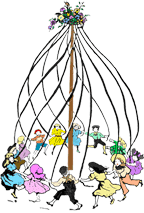Frona Hiibner
Depression is a condition in which many people have no work. Machines are idle, economic activity is low or depressed.[a]
We would often hear our parents and the neighbors talking about the bad times in large cities; of bread lines where people lined up to be served free food. People walked the streets looking for jobs, banks failed and many people lost their lifes savings.
My father was a farmer and believed in everyone doing a good days work. We worked long hours in the hay fields, beet fields, milked cows, fed the pigs and chickens, and on Saturdays cleaned the barn. If there was any spare time we worked for the neighboring farmers in their beet fields.[b]
My brother in law had a job on the rail road making $2.25 a day[c] so we considered him the rich man in the family. He gave us his old overalls and shirts to wear in the fields. He kept all seven of us in working clothes, even gave us gloves and shoes. One size fit all, the results was corns and bunions.
The depression was bad, even the land was poor which produced poor crops or none. There was no market for calves so they were destroyed at birth. Men were hired to help with the farm work at one dollar a day for ten hours work. Wheat was sold at twenty five cents a bushel and many farmers burned this for fuel. Eggs cost ten cents a dozen, bread cost five cents a loaf, cherry chocolates cost twenty five cents a box but we couldn’t even afford that. Tickets for a show cost ten cents but we had very little money for luxury so didn’t go very often.
After the summers work was over and the crops were harvested there was just enough money to pay the taxes. We were thankful for that. We were taught to pay the taxes and avoid worry and the loss of our property.
My father and brothers cut down trees and chopped and sawed it into fire wood. We had to stack it just right so it wouldn’t fall over. Our back yard usually had a huge stack of firewood.
I had weak ankles so was always falling down. My knees were skinned most of the time. No one thought of going to a Doctor for being so clumsy and falling over your own feet.
Mother made soap out of fat, lye and water and so our clothes were the whitest in the neighborhood. They were on the clothes line early each Monday morning rain or shine, and if the day was long enough a huge ironing would be finished up, everything had to be ironed.
Mother was a good cook we always had plenty of home made bread, beans, potatoes noodles and beet greens were delicious cooked with a little bit of bacon. On Sundays we had chocolate cake.
Many men were out of work so they would catch rides on freight trains around the country looking for jobs. Some of these men would stop at our place and ask for food. Mother never turned anyone away. She gave them the best food she had, sandwiches a loaf of bread, a glass of jelly or fruit.
My last job of the day was to fill the wood box behind the stove full of wood. I thoroughly disliked this and it was usually dark before I got around to this chore. We took our weekly baths in a tin tub. Water was heated on the kitchen stove in a boiler or tin tub. Usually we ran out of warm water when my turn came but we had to be clean one way or another, mother saw to that.
I enjoyed looking through the sears catalog and wishing I could[d] dress like those ladies pictures in the catalog. I would wish I had ten dollars so I could buy presents and best of all I wished I could buy a dress and a pretty pair of shoes. Hand me downs was almost as good.
We didn’t have a car so we walked or ran. Today folks run or jog.1
![]()
![]()
1. The Depression, Frona Hiibner. [Please contact Paul Housley for additional information on this family at www.phousley.com. Used with permission.]
[a] By Fona Hiibner was hand written in.
[b] Spelling correction. Original ‘beetfields’
[c] Correction ‘a day’ was hand written in. Original ‘an hour’.
[d] Correction ‘c’ was hand written in. Original ‘would’
